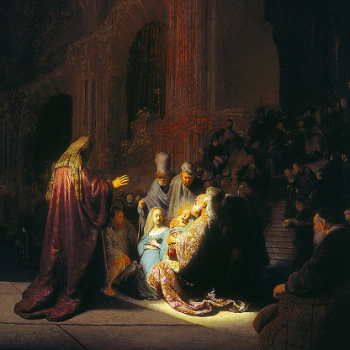Now Featured in the Patheos Book Club
The Myth of Equality: Uncovering the Roots of Injustice and Privilege
By Ken Wytsma
I was attending a Christian Community Development Association (CCDA) conference in New Orleans when a friend of mine, who was beginning an urban church plant in South Central Los Angeles, asked if we could meet with his leadership team.
This friend from Los Angeles is African American with a long history of community development work, so I was surprised when he asked for the meeting. He asked specifically that I talk about justice with the younger white co-pastors helping him with the church plant in South Central Los Angeles.
“Surely there’s nothing I could add to that conversation that he wouldn’t already know,” I thought.
We met the second day of the conference for lunch in the large atrium restaurant on the first floor. The midday sun was shining through to our table and hundreds of conference goers were milling about the atrium. For quite a while, our little group just caught up, discussed ministry, and enjoyed our food.
After some time, one of the young white pastors began to get animated as he told the story of a new relationship he was developing in the urban neighborhood of the church plant.
He had befriended a young black man in his twenties. They had been spending a lot of time together and the young pastor was excited about their growing friendship, but really frustrated at something the young man had recently said.
“You’ll never fully get it,” the young African American stated bluntly on matters of race. “No matter how hard you try, it won’t be the same for you and you can’t fully understand.”
This comment didn’t surprise me, but the pastor’s reaction did.
“I can’t stand this reverse-racism stuff,” he declared with an air of indignation. “It’s so not fair for him to put me in a box and say just because I’m white that I’ll never get it and can’t fully understand what he does.”
It was then I realized why my friend had asked me to lunch. There were things I could say as a white educated man about white privilege and blind spots in a way he never could.
We spent the next half hour explaining that the experiences of not being treated preferentially and having someone say you’ll never truly understand the first-person experience of being discriminated against, as being “less than” or profiled because of color, is far different than experiencing racism.
Racism is the diminishment of worth in men and women in and through bias, systems, and power structures that disadvantage them in tangible ways based on skin color.
This pastor, just because he has noble intentions ministering in an urban neighborhood, isn’t entitled to thinking he can truly know someone else’s experience. The white pastor also isn’t being marginalized or disadvantaged—not economically, not physically, not structurally—by a young black man telling him his efforts aren’t enough to fully understand the effects of racism.
Reverse-racism is a phrase thrown around when white people are singled out or described in terms of their whiteness. It is often, however, a gross misapplication of the idea of racism.
This is important as many people, not fully comprehending the nature of true racism, want to push back by asserting reverse-racism or prejudice against whites.
Regard is something we all crave. In fact, preferential treatment is something most humans prefer and enjoy. For many whites in America, this has been their reality and legacy. In many respects, however, the preferential treatment of whites is in decline. America is increasingly becoming multicultural and by the year 2050 will be, for the first time, over fifty percent black and brown.
Losing preferential treatment or letting go of privilege, as the young pastor above was struggling with, is not the same as experiencing oppression when racist systems and structures of power are erected against someone on the basis of the color of their skin.
Not having as much of a voice as one is used to can be jarring, but it’s not suffering racism.
—Taken from the introduction
6/1/2017 4:00:00 AM




